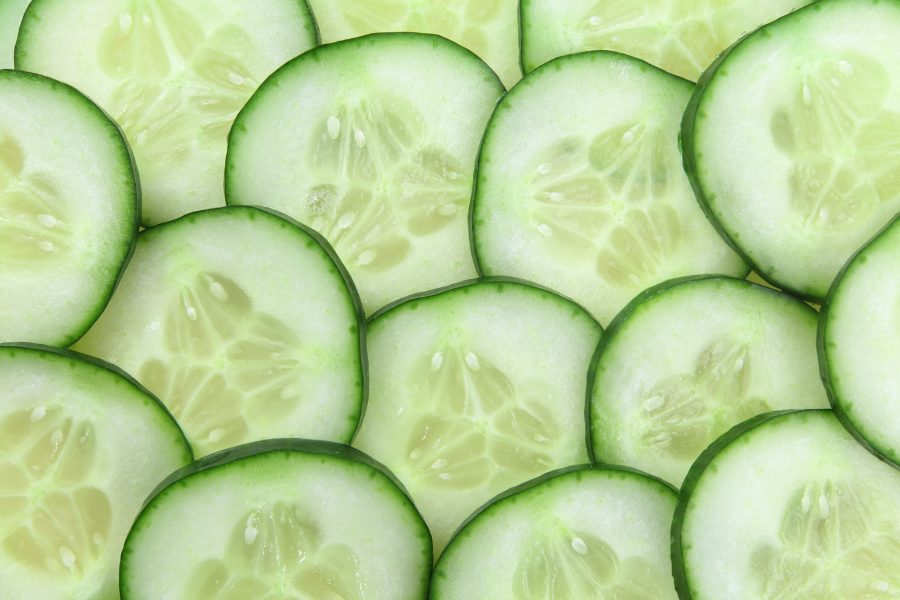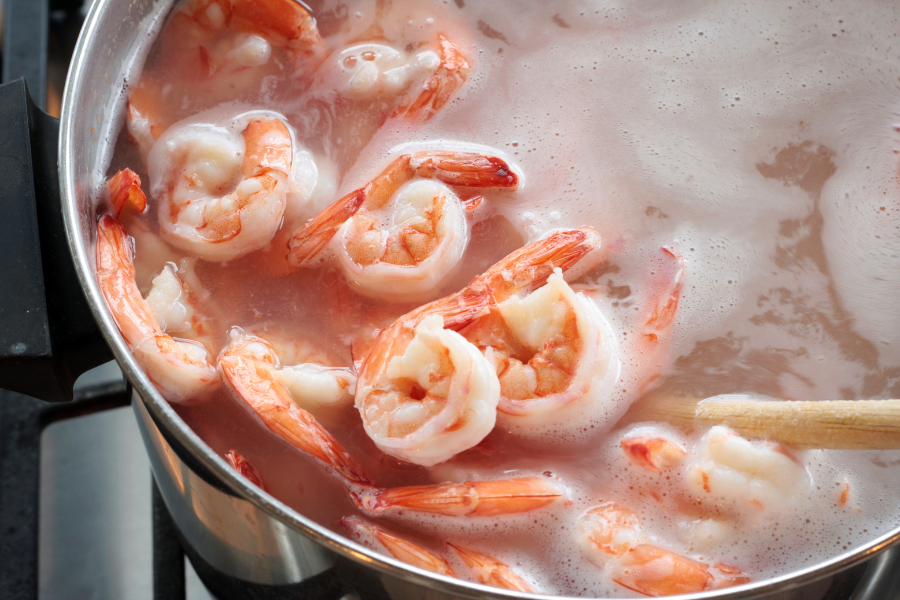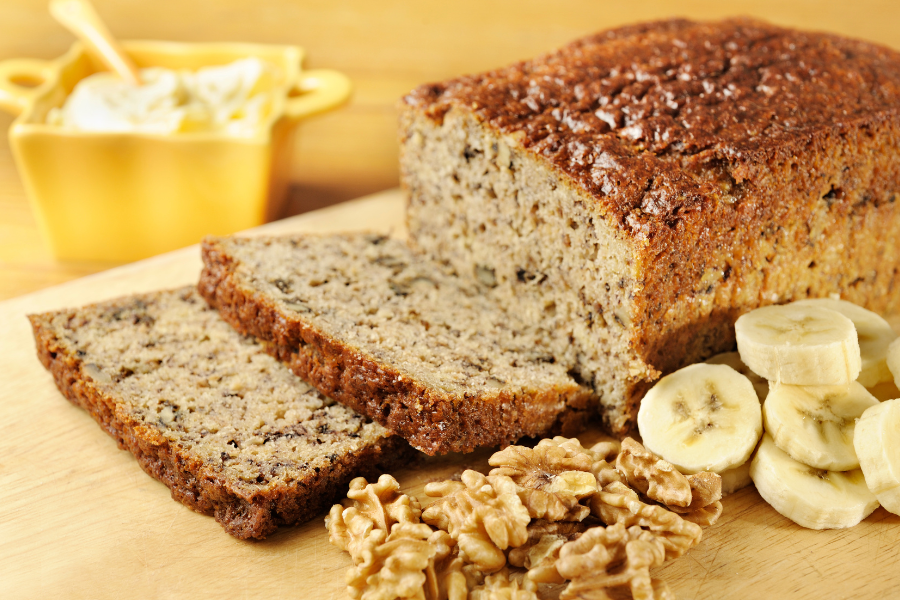Imagine the scene – you're munching away on a fresh salad, and as usual, your dog is casting an eager, hopeful glance your way. But wait, the plot thickens, you're eating cucumbers. You think to yourself "can I throw a few slices his way? this seams healthy, right? Or is this a veggie disaster waiting to happen?" - We're peeling back the layers on this crunchy green question fit for a dog's dinner discourse.
For many of us, cucumbers are the unsung heroes of coolness (you know the phrase "cool as a cucumber") that occupy copious cocktail walls and alleviate eye puffiness (here's looking at you, late-night binge watchers). But how about for our canine companions?
Key Takeaways:
- Absolutely, Yes! You bet your tail they can. Dogs can indeed have cucumbers. They are a hydrating snack, perfect for those balmy afternoons when your furry friend looks up at you with those "pretty please" eyes.
- Cucumbers are low in calories but super dense in vitamins and minerals, making them a splendid snack for pets on the plumper side or for those simply watching their weight.
- Hydration Hero - Considering cucumbers are, for the most part, water, they're a fabulous way to help keep your pup hydrated, especially during those muggy summer days (if you are in the Northeast you know what we are talkin' about) spent frolicking in the backyard or garden.
- Crunchy and Fun - Besides the health benefits, cucumbers can add a bit of crunch and variety to your dog's diet, sparking their curiosity with that oh-so satisfying crunch.
- Moderation is the key to most things in life, and cucumber are no exception. They should be given in moderation. Too much of this crunchy treat can lead to an upset tummy, turning dreamy afternoons into not-so-pleasant ones.
Cucumber Blues: When to Hold Back
Canine Consumption Compatibility
Right off the bat we are hitting you with the good news: cucumbers by themselves are not toxic to dogs. They're a garden treasure trove of nutrients and water, with a crunch that's oh-so satisfying for human and hound alike. With that being said, it is important to note that there are aspects of cucumbers that make them not the healthiest treat choice for your doggo.
Digestive Dilemmas
Cucumbers are famous for being 'mostly water,' containing almost 95% of the liquid life force (sh**, that is a lot!). A little hydration is great for your pooch, overdoing it can lead to tummy upsets and potentially difficult digestion. Dogs, like humans, can suffer from the after-effects of too much of a good thing. An upset stomach can mean vomiting, diarrhea, and a very uncomfortable canine companion. Stick to small, infrequent portions to avoid gastrointestinal distress.
To Salt or Not to Salt
If you're sharing cucumber slices from your salad bowl, make sure they are not seasoned with salt, or anything else for that matter. Excessive salt can lead to conditions like sodium ion poisoning, which can trigger symptoms like vomiting, diarrhea, depression, tremors, high temperature, and seizures – all very bad, particularly if your dog has ingested a large amount.
Say No to Pickles
This should be slightly obvious, given the no-seasoning bit above, but we are going to cover it anyway ;-) Pickles are created using a solution of salt, vinegar, and other pickling agents that are no-nos for canines. Plus, the sodium content in pickles is significantly higher than in fresh cucumbers. While the occasional nibble might not be disastrous, don't make pickles or any pickled food a regular part of your pet's diet.
Encouraging Cucumber Consumption
Portion Power
Like with any treat, moderation is key. Treat cucumbers (pun intended) as you would any snack, and remember that they should make up a very small percentage of your dog's daily caloric intake. The general rule of thumb is that treats should account for no more than 10% of a dog's calories.
Safety First
Always ensure any vegetable snacks you feed your pet are prepared in ways that are safe for dogs to eat. Large or round slices can pose a choking hazard, and seeds are a risk for a potential stomach blockage. Cut your cucumber snacks into manageable sizes, and take out the seeds before sharing.
Cooling Canine Treats
Especially in warm weather, a frozen cucumber slice can be a rather refreshing reward for Rover. It's the doggy equivalent of an icy pole, minus the added sugar. But be vigilant – frozen treats can wreak havoc on teeth, so ensure your dog is munching cautiously.
The Canine Health Upsides
Nutritional Value
Cucumbers offer your pet a healthy dose of vitamins K, B, and C, as well as minerals like copper, manganese, and potassium in small amounts. This can help with everything from bone development, to a strong immune system, and more. Not bad for a beaming green beam.
Hydration Helper
Sometimes getting your dog to drink enough water can be a chore. Cucumbers, with their high water content, can add a little hydration boost, particularly beneficial when combined with physical activity.
Weight Management
Given that cucumbers are low in calories, they make a smart snack choice if you're watching your pooch's waistline. The high water content also aids in the feeling of fullness, which can be a thoughtful part of a weight management plan.
A Bite of Dental Delight?
Ah, the eternal quest for the holy grail of doggo dental care makes us ponder—can the humble cucumber play a knight in shining armor for our furry friends' teeth? Amidst the symphony of crunches, there's a whimsical notion that these green, hydrating sticks of joy might just be more than a hydrating snack; they could be brushing our pups' teeth with every bite. While cucumbers don’t contain any magical tooth-cleaning enzymes or dental health properties per se, the act of chomping down on these crisp veggies can assist in mechanically scraping residue off your dog's teeth. It's akin to giving your pooch a natural, albeit mild, toothbrushing session. However, this doesn't mean cucumbers can replace regular dental care routines. Just as a stolen kiss beneath the moonlight doesn't promise eternal love, relying solely on cucumbers for dental health won't ensure those pearly whites stay healthy and strong. Remember, the key to a dazzling canine smile lies in a balanced diet, regular dental check-ups, and the faithful brushing of those chompers.
The Verdict on Veggies
Tailor Your Treats
Each dog is different, with unique tastes and dietary tolerances. While many dogs can have cucumbers, your individual pet might not be a fan. Try a small piece and see how they take to it.
Healthy Alternatives
If cucumbers don't make the cut for your pup, consider other dog-friendly vegetables like carrots or green beans. They also offer healthful benefits and are often more palatable to the canine palette.
Always Ask a Professional
Whenever you have any doubts about your dog's diet, or introducing any new food or supplement, it's wise consult your veterinarian. They can advise you based on your specific pet's needs and any health concerns.
In conclusion, cucumbers can be a part of your dog's treat repertoire, as long as they're served in moderation and under the proper conditions. Like any food item, it's crucial to know the potential risks and benefits, and to tailor snacks to your pet's unique diet and health requirements.
Keep those furry friends happy and healthy, and remember, a little cucumber wisdom can go a long way in the wide, wacky world of dog nutrition.
References
1) Naureen Z, Dhuli K, Donato K, Aquilanti B, Velluti V, Matera G, Iaconelli A, Bertelli M. Foods of the Mediterranean diet: citrus, cucumber and grape. J Prev Med Hyg. 2022 Oct 17;63(2 Suppl 3):E21-E27. doi: 10.15167/2421-4248/jpmh2022.63.2S3.2743. PMID: 36479487; PMCID: PMC9710412.



